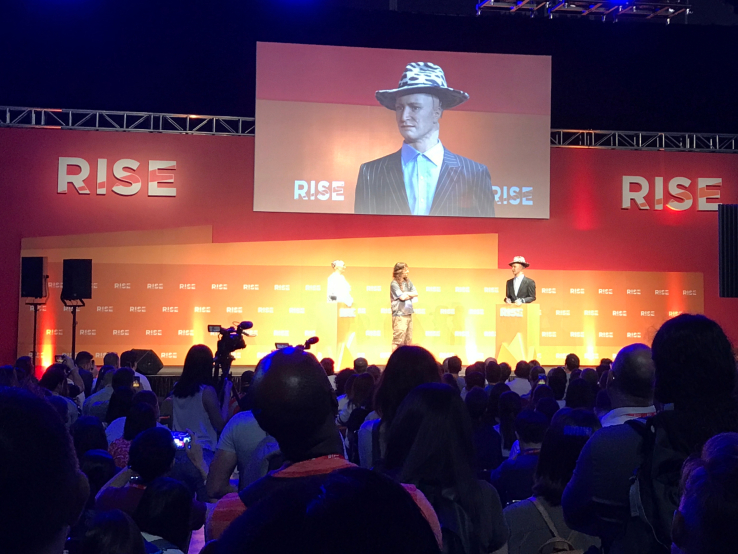

I got a glimpse into the future world of our robot overlords today. It was nervy at times.
I watched two robots go on stage at a tech event to “debate” the future of humanity with each other.
The robots in question are Sophia and Han, and they belong to Hanson Robotics, a Hong Kong-based company that is developing and deploying artificial intelligence in humanoids. The duo took to the stage at Rise in Hong Kong with Hanson Robotics’ Chief Scientist Ben Goertzel directing the banter.
The conversation, which was partially scripted, wasn’t as slick as the human-to-human panels at the show, but it was certainly a sight to behold for the packed audience. Topics ranged from an early (and creepy) joke about taking over the world with a drone army, to ethics in robots and humans, robot job potential, and whether it is better to be rich or famous. There was even singing.
The event organizers claimed a world first for two robots talking on stage, and it isn’t difficult to imagine that it could become a more common sight in the future.
Indeed, this is just the start of Hanson Robotics’ ambitious plans.
Company CEO and founder Dr David Hanson believes robots will become commonplace in homes and other aspects of our daily life within the next decade. But the key to that progress is to equip them with the emotions and adaptability that is lacking from today’s crop.
“We’ve got these early uses but our aspiration is Data from Star Trek,” Hanson told TechCrunch on the sidelines of the event following the robot debate. “Data was the smartest member of the crew, he could do anything.”
“He certainly could work in a shop or a factory, but he was helping to solve the big problems in collaboration and friendship with people. He had a heart of gold, he was creative, he learned and adapted, he wasn’t susceptible to the moral flaws of humans. That what we are aspiring towards — we are still hooking all these things together but we’ve got the parts in pieces,” he added.
For now, Hanson Robotics is preparing to launch its first consumer product, an Einstein-like mini robot aimed at teaching science to children. The robot is likely to be officially unveiled within the next month and be available for less than $300 once it goes on sale.
Up until now, the company has deployed small numbers of its humanoids for science museums, AI development projects and healthcare, in particular around working with autism cases. Now it can add speaking in front of a crowd at a technology event to the timeline.

